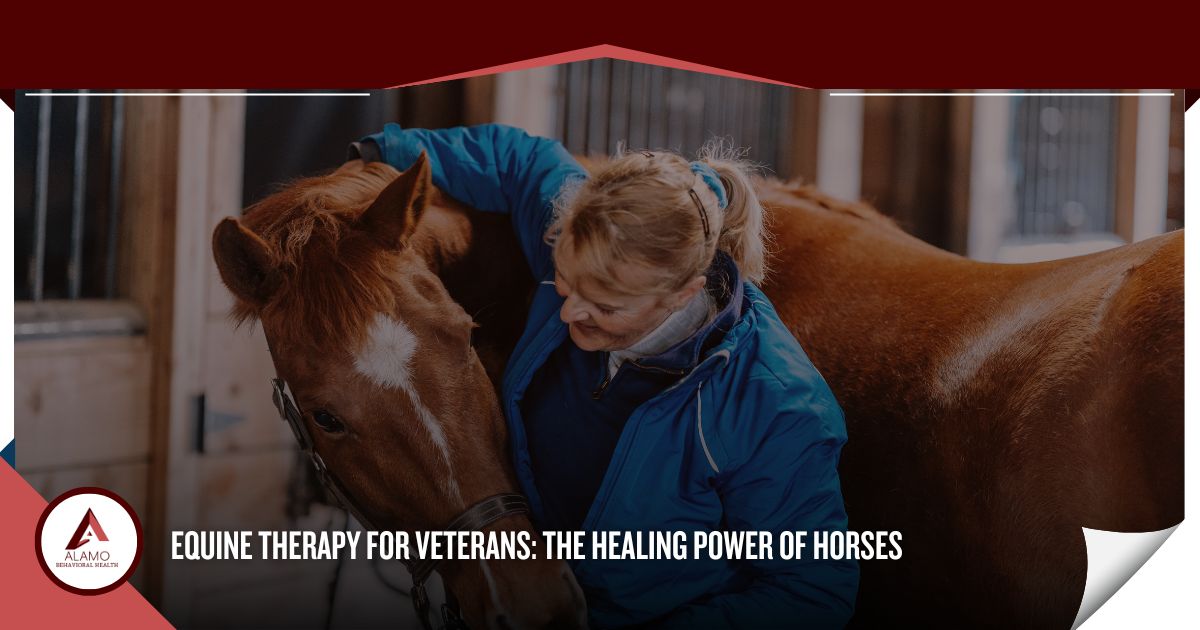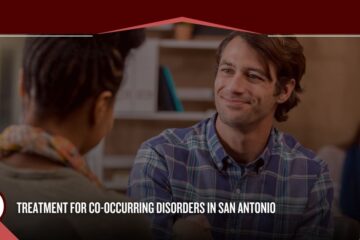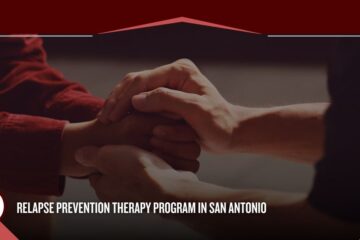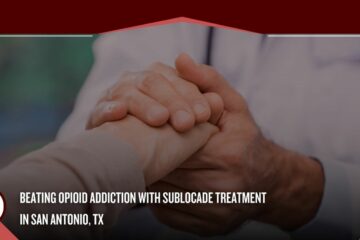
Veterans experience high levels of stress during their time in the military. Whether they see combat or not, it is common for them to have a history of trauma. Because of the likelihood of veterans experiencing trauma, many of them develop post-traumatic stress disorder (PTSD).
PTSD causes a wide range of symptoms, including flashbacks, nightmares, and mood swings. Veterans often have a hard time coping with these symptoms. Thankfully, professional treatment centers provide evidence-based therapies that are effective in managing PTSD.
The standard of care for veterans with PTSD is traditional trauma therapy. However, a new type of treatment is showing impressive results. Equine therapy for veterans allows them to create positive connections with a living creature while causing improvements in their PTSD symptoms.
What is Post-Traumatic Stress Disorder (PTSD)?
Post-traumatic stress disorder (PTSD) is a condition that develops after you experience trauma. Not everyone who deals with trauma will develop it. However, people with less support in their lives are more likely to develop PTSD.
The symptoms of PTSD include:[1]
- Flashbacks of the traumatic event
- Nightmares and sleep issues
- Distressing thoughts
- Physical signs of stress, like panic attacks
- Avoiding people, places, or things that remind you of trauma
- Being easily startled
- Feeling tense or on edge
- Difficulty concentrating
- Being irritable or having outbursts of anger
- Engaging in risky or impulsive behavior
PTSD and Veterans
According to the U.S. Department of Veteran Affairs (VA), 23% of veterans seeking treatment at the VA had PTSD at some point in their lives.[2]
Where a veteran serves can dictate the type of trauma they experience. However, many veterans experience the following traumatic events:
- War zone deployment
- Training accidents
- Military sexual trauma
- Lasting injuries from deployment
- Difficulties transitioning into civilian life
Military personnel develop PTSD because of the wide range of trauma they are exposed to. The most common symptoms of post-traumatic stress disorder include flashbacks and nightmares. Veterans may also deal with depression, anxiety, mood changes, and social isolation.
How is PTSD Usually Treated Among Veterans?
Veterans with PTSD should seek treatment from mental health professionals. Usually, treatment involves trauma-informed therapies. For example, veterans might discuss their trauma with a therapist to change the way they process it emotionally.
While the healing process can be long, veterans often recover under the care of inpatient or outpatient mental health treatment programs.
The standard therapies used to treat trauma and PTSD among military veterans include:
- Cognitive behavioral therapy (CBT)
- Eye movement desensitization and reprocessing (EMDR)
- Traditional psychotherapy
- Cognitive processing therapy
- Prolonged exposure therapy
Family behavioral therapy is used to help veterans and their families heal. Because PTSD can affect your loved ones as well, this is often a beneficial route to take.
Is the Standard of Care Working?
While traditional therapy for PTSD works for some veterans, it is not practical for everyone. The VA reports that an average of 17 veterans commit suicide every day.[3]
Since suicide rates are so high among veterans, it is clear that the standard of care is not suitable for everyone.
You must recount your traumatic memories during trauma therapy. Some veterans might become re-traumatized using this type of treatment. While many factors play a role in the suicide rates, re-traumatization might be a part of it.
Thankfully, experts are beginning to look for new ways to address trauma and PTSD among veterans. Veterans equine therapy might just be the answer we are looking for.
What is Equine Assisted Therapy?
Equine therapy programs incorporate riding horses and caring for them with traditional therapy. Individuals will create a connection with horses in small groups. This type of mental health care can be incredibly effective in treating PTSD or trauma.
Spending time with animals can be helpful for your mental health. Frequently, animals have an innate stress-reducing quality about them. Equine specialists will help their patients foster a connection with a horse while offering therapeutic techniques simultaneously.
Equine-assisted therapy can treat a wide range of mental health conditions, including:
- Behavioral issues
- Relationship troubles
- Grief
- Anxiety
- Depression
- Addiction
- Eating disorders
- Post-traumatic stress disorder (PTSD)
Equine therapy allows you to focus on caring for an animal. At the same time, you will learn healthy coping mechanisms and change negative behavior patterns.
How Equine Therapy for Veterans is Changing the Game
Military service members are beginning to experience the healing power of horses. Columbia University conducted a study on veterans and equine therapy. In their study, 63 veterans with PTSD engaged in equine-assisted therapy.
More than 50% of the veterans in the study had positive results.[4] They experienced reduced symptoms of PTSD and depression three months after their treatment.
With that being said, it’s easy to see that equine therapy is a game changer for the treatment of PTSD among veterans.
Get Connected to Highly Rated PTSD Treatment for Veterans
If you are a veteran who struggles with PTSD or trauma, Alamo Behavioral Health is here to help. We offer evidence-based treatments and holistic services to improve your overall quality of life.
To learn more about our PTSD treatment center for Veterans, contact us today.
References:
- The National Institute of Mental Health (NIMH): Post-Traumatic Stress Disorder, Retrieved January 2024 From https://www.nimh.nih.gov/health/publications/post-traumatic-stress-disorder-ptsd
- The U.S. Department of Veteran Affairs (VA): How Common is PTSD in Veterans, Retrieved January 2024 From https://www.ptsd.va.gov/understand/common/common_veterans.asp
- The U.S. Department of Veteran Affairs (VA): 2022 NATIONAL VETERAN SUICIDE PREVENTION ANNUAL REPORT, Retrieved January 2024 From https://www.mentalhealth.va.gov/docs/data-sheets/2022/2022-National-Veteran-Suicide-Prevention-Annual-Report-FINAL-508.pdf
- Columbia University: Horse Therapy Helps Veterans Overcome Trauma, Retrieved January 2024 From https://www.columbiapsychiatry.org/news/horse-therapy-helps-veterans-overcome-trauma



